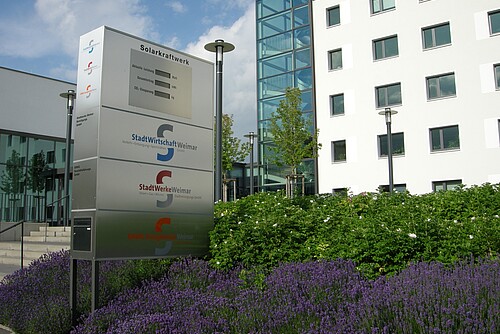

Strict data protection guidelines such as the GDPR require secure IT structures. While NIS-2 affects larger administrations, the BSI (German Federal Office for Information Security) recommends that local authorities implement IT baseline protection. Without clear security strategies, risks arise from shadow IT and inadequate protection against cyberattacks.
Many authorities and municipalities manage numerous end devices with limited staff. Automated IT management solutions relieve the burden on IT departments and ensure more efficient processes. At the same time, modern technology facilitates the implementation of new digitalisation initiatives.
Outdated systems, manual software updates and a lack of standardisation make IT management difficult. Automated processes and centralised client management enable a secure and smooth IT landscape.
Public administration requires IT solutions that seamlessly integrate different systems (Windows, Mac, Linux). A centralised management platform facilitates scaling and ensures long-term IT stability.
IT departments in the public sector are often faced with the challenge of carrying out routine tasks manually. This costs time and ties up scarce resources. ACMP Desktop Automation automates recurring tasks such as software distribution and device configuration, making processes more efficient and freeing up staff.
Further information can be found here: ACMP Desktop Automation
Windows updates need to be managed efficiently and securely. Conventional solutions such as Windows Server Update Services (WSUS) are cumbersome, maintenance-intensive and will soon no longer be supported by Microsoft. ACMP CAWUM (Complete Aagon Windows Update Management) simplifies the management of your Windows updates and works completely without WSUS. This enables the automated, client-specific distribution of updates, reduces bandwidth consumption and increases security through predictable and transparent update processes. In addition, selected drivers from third-party catalogues can be distributed directly without WSUS.
Further information can be found here: ACMPCAWUM
IT security is a top priority in public organisations. ACMP Vulnerability Management reliably recognises and eliminates security gaps in public IT infrastructures. The module continuously analyses Windows clients, identifies potential risks and presents the results clearly. This enables IT teams to react quickly and implement security measures efficiently. The seamless integration into ACMP also enables affected clients to be organised in dynamic containers and targeted measures to be executed directly.
Further information can be found here: ACMP Vulnerability Management
Operating systems have to be installed on numerous devices in a standardised way. If the process is carried out manually, it is usually time-consuming and error-prone. ACMP OS Deployment, on the other hand, enables the automated, network-based installation of Windows operating systems, including full UEFI and secure boot support. This reduces manual effort and guarantees a consistent system environment.
Further information can be found here: ACMP OS Deployment
Keeping track of numerous software licences and adhering to complex compliance requirements is not only a challenge in the public sector. ACMP Licence Management is a solution for managing all software licences, recognises different licence types and complex dependencies and helps to avoid over- or under-licensing. Automated reports ensure transparency and help to save costs.
Further information can be found here: ACMP Licence Management
Effective protection against malware is essential for authorities and public institutions. ACMP Defender Management facilitates the central control of the integrated Microsoft Defender Antivirus. The module coordinates virus scans, reports threats in real time and creates detailed reports on detected threats. This allows IT departments to maintain control over the security status of all managed devices at all times and respond to threats in a targeted manner.
Further information can be found here: ACMP Defender Management






Authorities and public organisations manage a large number of end devices, often with limited IT resources. Centralised Unified Endpoint Management enables efficient management, automates updates and reduces the administration effort so that IT departments can concentrate on strategic tasks.
Public institutions must fulfil high data protection and security standards. ACMP offers functions such as vulnerability management and centralised software updates to minimise IT risks. At the same time, integrated logging helps to fulfil requirements such as the BSI's IT baseline protection or the GDPR.
Many routine tasks in public administration, such as installing updates or managing software licences, are time-consuming. ACMP automates these processes, reduces sources of error and ensures smooth IT support - even with limited staff.
Public authorities are faced with the challenge of managing a growing IT infrastructure with limited human resources. ACMP relieves the burden on IT teams through automation, standardised processes and a user-friendly interface, enabling even less specialised employees to complete everyday tasks efficiently.
Yes, ACMP is suitable for municipal IT service providers as it offers multi-client capability and can be flexibly adapted to different requirements. This means that several authorities can be managed via one platform, while individual configurations are possible depending on the institution.
Public authorities are often the target of cyber attacks and need to protect sensitive data. ACMP offers functions such as vulnerability analyses and automated Windows updates to secure IT systems against threats and at the same time implement the requirements of IT baseline protection.
The implementation depends on the size of the authority and the existing IT infrastructure. Smaller local authorities can use ACMP within a few days, while larger administrations need several weeks for full integration. Thanks to preconfigured modules and a structured implementation plan, the rollout can be completed quickly.
Aagon offers practical training for public authorities and municipal IT service providers. This includes introductory workshops, administrator training and online courses on current security and compliance topics. Customised training courses for specific requirements are also available on request.
Thanks to its optimised focus on the requirements of medium-sized IT departments, ACMP is also ideal for use in public institutions. It combines automation, high security standards and flexible scalability to manage IT processes efficiently. Thanks to the option of on-premises operation, public authorities retain full control over their IT infrastructure.
Es scheint, als wären Sie auf nicht auf der gewünschten Sprachversion dieser Website gelandet. Möchten Sie wechseln?